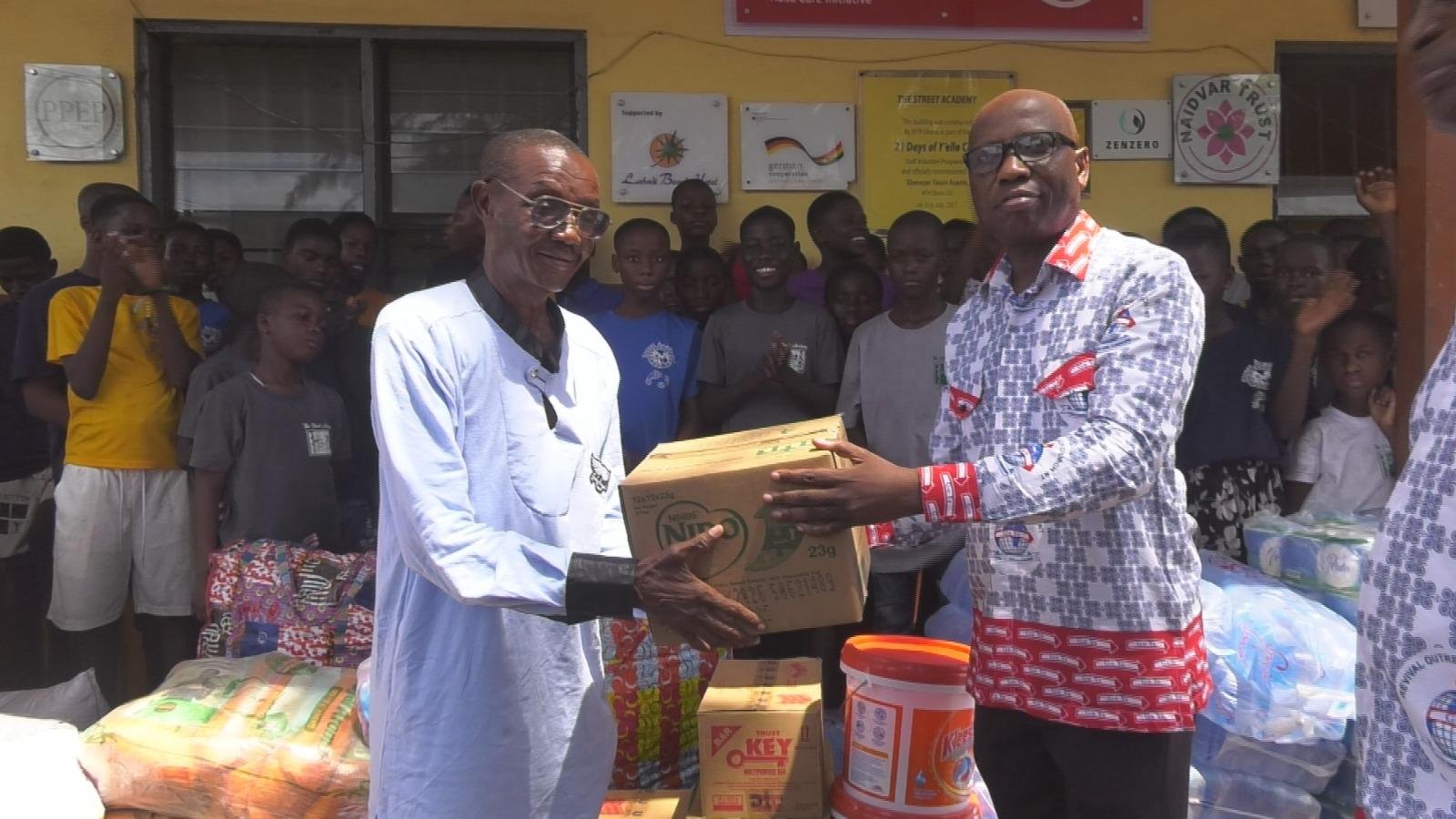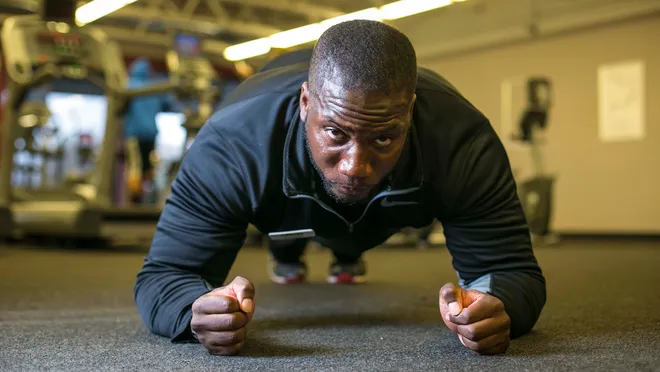Health Essentials
‘Every birth counts’: The critical need to improve emergency maternal care in Ghana

Imagine a young woman in labour, her heart racing, her unborn child in distress. She arrives at a district hospital — tired, scared, and in need of immediate care. What happens next determines whether she lives, whether her baby survives — and whether another Ghanaian family is shattered by a preventable loss.
A recent study in the Lower Manya Krobo Municipality of the Eastern Region is shedding new light on the realities of emergency obstetric and newborn care (EmONC) in Ghana. The findings are sobering — but they also reveal a clear path forward.
Why this matters now
Despite progress in maternal health, far too many Ghanaian women are still dying from childbirth-related complications. Ghana’s maternal mortality ratio is estimated at 308 per 100,000 live births — nearly 20 times higher than the average in high-income countries.
“We know what the problems are, and we know how to solve them,” says Dr Reuben Esena, one of the study authors. “The question is: are we willing to invest where it matters most — in women’s lives?”
What the study found
The research, published in the International Journal of Science Academic Research, evaluated three key hospitals — St. Martins Catholic Hospital, Atua Government Hospital, and Akuse Government Hospital — which serve a population of over 108,000 in Lower Manya Krobo.
The study reviewed 271 cases of obstetric complications and found that the most common were:
– Foetal distress (18 per cent)
– Complications from previous C-sections (13 per cent)
– Pre-eclampsia and eclampsia (8 per cent)
– Cephalopelvic disproportion and breech deliveries (7 per cent)
These complications are not rare, nor are they unpredictable. Most are entirely preventable or manageable — with timely intervention and well-equipped facilities.
A mixed picture: Progress and gaps
The good news? All three hospitals provide round-the-clock EmONC services, staffed by midwives, medical officers, and anaesthetists. Life-saving drugs like oxytocin and magnesium sulfate are widely available. Caesarean sections and manual placenta removal are routinely performed when needed.
The bad news? None of the facilities had an infant laryngoscope — essential for newborn resuscitation. Only one had ergometrine to control bleeding after childbirth. And not a single case utilised assisted vaginal delivery — even where it might have been appropriate.
In some cases, multiple complications overlapped, such as foetal distress plus severe pre-eclampsia. For a woman in that situation, every minute counts. Every delay risks two lives — or more.
Who’s Most at Risk?
Women aged 25–29 years had the highest number of complications — a reminder that even “prime age” pregnancies can be dangerous without the right support. But adolescents and women over 40 faced some of the most severe risks, including eclampsia, foetal death, and difficult labour.
“Our younger girls, especially those between 15–19 years, are particularly vulnerable,” the study noted. “They come late to the hospital, sometimes after trying traditional remedies at home. By the time they arrive, it’s often too late.”
A national crisis demands national response
The maternal health challenges in Lower Manya Krobo reflect a broader national reality. Many districts across Ghana lack the full complement of staff, drugs, and equipment required for quality EmONC services.
But the solutions are not out of reach.
So what must we do?
1. Invest in life¬-saving supplies and training: Every hospital handling deliveries should be equipped with the full range of emergency tools — including items as simple, but critical, as an infant laryngoscope or ergometrine injection.
2. Improve documentation and digital health systems: Accurate records allow clinicians to track complications and adjust care accordingly. Ghana’s shift to digital health must prioritise maternal health systems.
3. Decentralise comprehensive EmONC: More health centres and CHPS compounds need capacity to offer basic EmONC. Complications don’t wait for referrals — care must be accessible at the first point of contact.
4. Promote community education: Women and families must be educated on the importance of antenatal care, early referrals, and hospital deliveries, especially in rural areas where myths and delays still cost lives.
Every woman deserves a safe birth
This study is more than data — it’s a call to action. Behind every statistic is a mother, a child, a family. Ghana has the knowledge, the workforce, and the policy framework to make maternal death a thing of the past.
What remains is commitment — not just in funding, but in leadership, in community involvement, and in valuing every single life.
As the researchers conclude: “Emergency Obstetric and Newborn Care is not a privilege. It is a right — and one that Ghana must deliver.”
By Henry Okorie Ugorji
Health Essentials
Revival Outreach Church donates food items, others to Street Academy

The Revival Outreach Church in La on Friday presented food items to the Street Academy in Accra.
The gesture was to support the academy to take care of the underprivileged children and help in the organisation of an Easter picnic for the children on Easter Monday.
The items worth over Gh₵27,000 include rice, sugar, maize, tin fish, gari, toiletries, clothes and many others.
Led by Rev. Prof. Abednego Okoe Amartey, immediate past Vice Chancellor of the University of Professional Studies, Accra (UPSA) said the gesture was to put smiles on the faces of the children and also encourage the staff of the Academy for the good work.
He said the presentation has been an annual thing and believes it has come to stay.
According to him, it was important for other churches and organisations to join the effort to keep these children off the street and be trained in their areas of interest.
Rev. Emmanuel Amuzu who presented the items commended the staff and management of the Academy for the good work it was doing to giving the children a bright future.
He said the items were not meant for the children alone, adding that, “part of it would go to the teachers who train these children. That should serve as an incentive to them.”
He lauded the vision of the Academy Director, Ataa Lartey and urged more organisations to offer similar support.
“What the Academy is doing is massive. These are children who on regular days would roam the streets and grow up becoming social deviants. Parents should try to be more responsible taking care of their wards.
“However, traditionally when a child is born, his or her development and upbringing becomes the responsibility of the society. It is the reason we, as a church, would continually support the academy to keep these children to get the training to be responsible adults,” he explained.
The Director of the Academy, Ataa Lartey thanked the leadership and members of the church for the presentation which he said would go a long way to ease the burden on them.
By Spectator Reporter
Health Essentials
At Easter should Spiritual Wellness be the only form of Wellness?

Many of us have already packed our Easter season with so much work and back-to-back programmes we hardly have time to breathe.
The little time we can squeeze out is used to stuff ourselves with food and drinks, but for this season and beyond we may be able to spend five minutes even on extremely busy days to make a difference in our lives so that we can have time to sing, dance and worship God as we remember his unparalleled sacrifice to us.
My-in-laws who reside on the mountain are busy trekking up and dragging their friends and colleagues with them. Any idea why the Kwahus revel in Easter? Has it always been that way or is it a conscious effort to show Ghana and the world what they have?
We all wish our favourite exercises will give us the same benefits as all other exercises but the truth is that some exercises are “more equal than others” just as happens in every aspect of life.
This does not mean if you are unable to perform the most effective exercises, you should exert yourself and cause injury to your body. Remember, Cobba’s First Law of Exercising is “DO NO HARM”.
These exercises may just help you stay afloat this Easter:
• Squats
• Plank
• Push-Ups
• Walking & Dancing
Squats
Every single rep (repetition) in this exercise is worth the effort.
Squats target the quadriceps, hamstrings and gluteals, which in simple language refers to the thigh muscles and buttocks.
It is important to learn the right technique and since it exercises large muscle groups, you are able to burn a lot of calories with squats.
In every exercise session, it is important to work large muscles before the smaller ones.
Steps
1. Keep feet shoulder width apart
2. Back should be straight (standing posture)
3. Bend knees and lower your rear till your thighs are horizontal.
4. Return to the standing position
5. Repeat steps 1-4
6. Remember to stretch the muscles used after the exercise.
If you have difficulty following the steps above, place a chair behind you and with your back straight try to sit on it. Do not let your buttocks touch the seat, then return to the standing position and repeat. As your technique improves, you may remove the chair.
As one gets stronger you may even carry some weights while doing squats but as always start with caution. You may do only 3 reps at a time (properly). Gradually, add some more.
When to avoid squats
• Severe knee pain irrespective of cause
• Knee injury even if no longer painful (you will need professional supervision)
• Acute back pain (you will later do back slides which is similar to squats and helps strengthen back muscles)
This exercise benefits almost everyone with a lifestyle disease. Hypertensives (those with high blood pressure) even get a bonus since it causes peripheral pooling of blood and helps to lower the blood pressure over time.
Plank

Arguably, the safest exercise for strengthening abdominal muscles and also has the added benefit of strengthening lower back muscles. Especially for people who sit for long hours (you shouldn’t anyway) this is great news for helping your back.
1. Start by getting into a push-up position
2. Bend your elbows and rest your weight on your forearms and not on your hands
3. Support your lower body on your toes
4. Your body should form a straight line from shoulders to ankles just like a plank of wood
5. Engage your core (midsection) by sucking your belly button into your spine
6. Hold this position for the prescribed time. This may vary from 5 seconds to 1 minute. Repeat.
Push-ups (press-ups)
This is probably the first exercise most people try out; well apart from laughter and walking I presume, and everyone is familiar with it.
Go ahead and squeeze a minute a day in there.
Walking & dancing
Before you set out to exercise your muscles remember to walk at least a minute before you start and a minute after you are done.
You may even walk while in one place, what matters is moving your legs and arms and getting your heart to pump.
Use every opportunity during the day to:
• use the stairs instead of the elevator
• walk while you talk on your cell phone
• Walk to a colleague’s desk at the office instead of using the phone or sending someone else.
• Pick your own stuff for cooking instead of sitting and getting people to assist with even the trivial errands
• Dance with your heart whenever you have a chance; during your Christmas programmes, while watching TV and even while you take a shower.
A minute each for Squats, Planks and Push-ups and two minutes of walking every morning, afternoon or evening may just be enough to get you through the season and certainly it will not tamper much with your tight holiday schedule. Do not forget to smile often, breathe deeply to relax, enjoy some sunshine, pray, praise and worship God and you will be on the right path especially if you keep an eye on your finances and learn to unplug several hours each day.
In my opinion, every aspect of Wellness is important at all times and we should try to keep a balance. Neglecting all other aspects (Physical, Social, Mental, Digital, Financial & Spiritual) and focusing only on Spiritual Wellness will mean we will not be able to perform at our very best and certainly our Maker needs the best version of us.
AS ALWAYS LAUGH OFTEN, ENSURE HYGIENE, WALK AND PRAY EVERYDAY AND REMEMBER IT’S A PRICELESS GIFT TO KNOW YOUR NUMBERS (blood sugar, blood pressure, blood cholesterol, BMI)
Dr Kojo Cobba Essel
Health Essentials Ltd/ Medics Clinic
(dressel@healthessentialsgh. com)
*Dr Essel is a Medical Doctor with a keen interest in Lifestyle Medicine, He holds an MBA and is an ISSA Specialist in Exercise Therapy, Fitness Nutrition and Corrective Exercise. He is the author of the award-winning book, ‘Unravelling The Essentials of Health & Wealth.’
Thought for the week – “For heart health you need to relax and have fun as well; schedule time for leisure, sing praises to God, laugh often, learn to breathe deeply and maybe get a pet.”
References:
• The Gym Bible
• www.webmd.com
• 30dayfitnesschallenges.com
By Dr Kojo Cobba Essel







